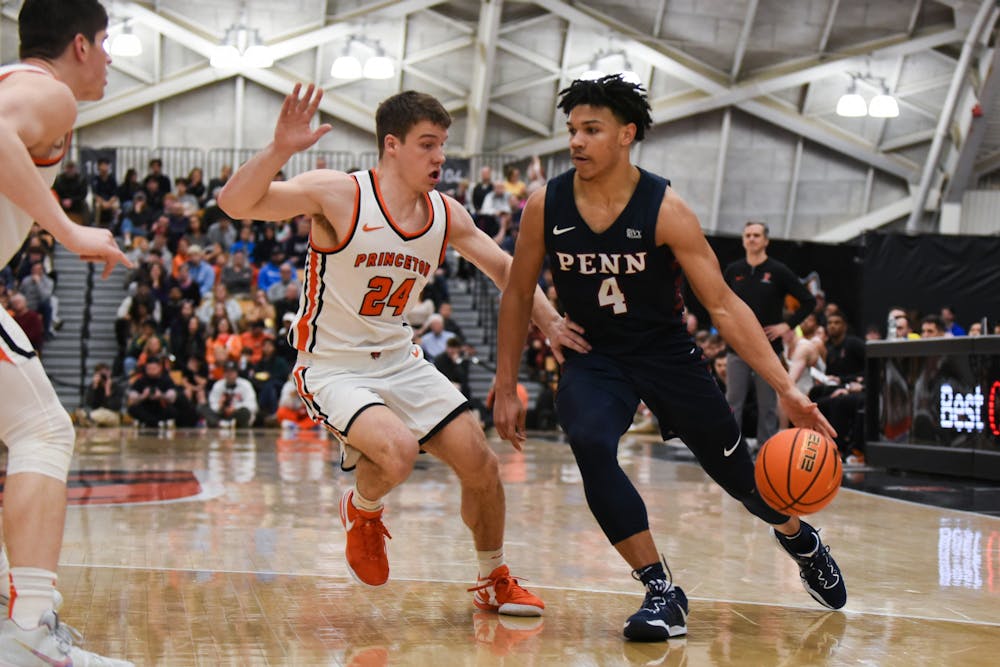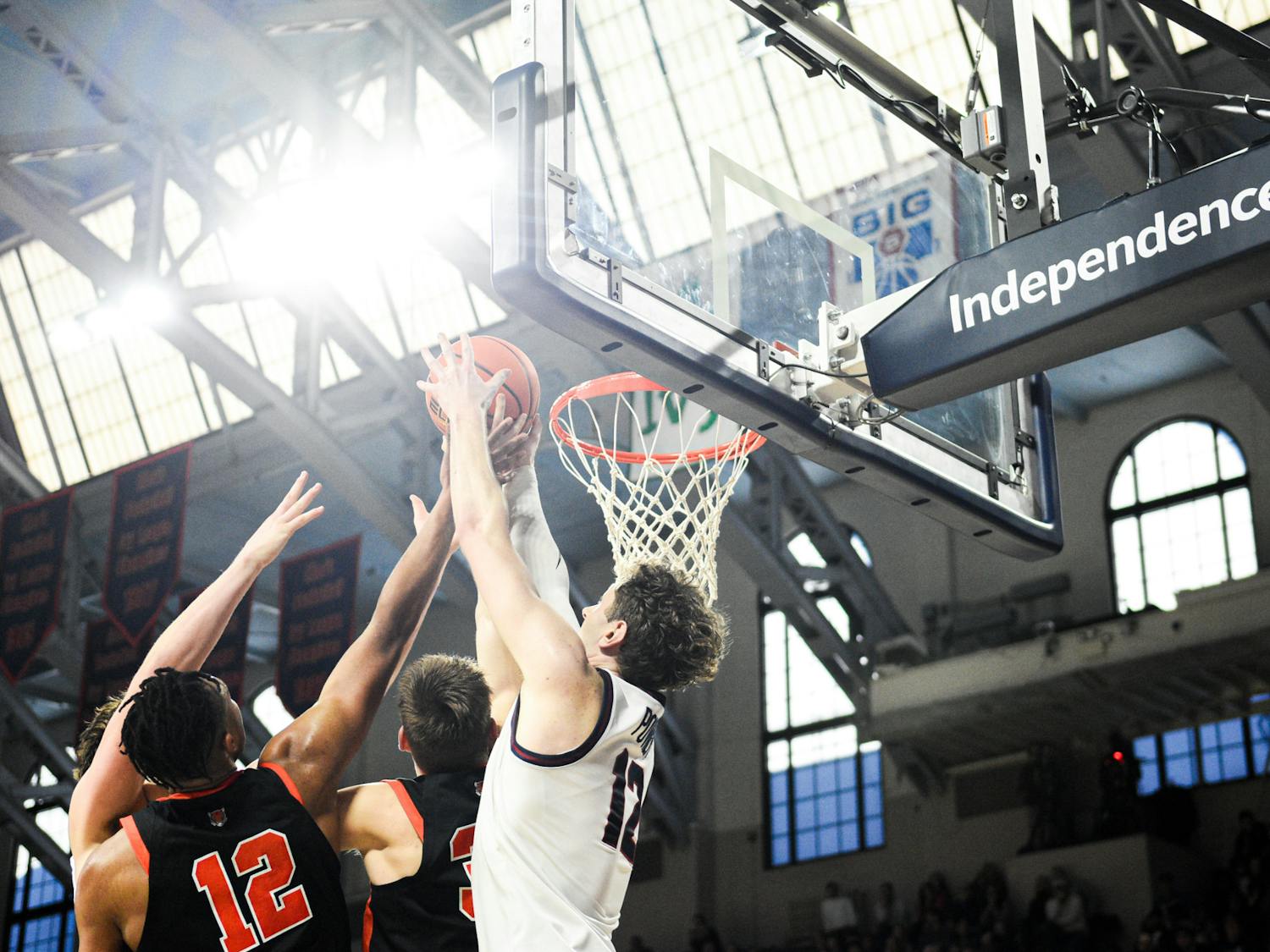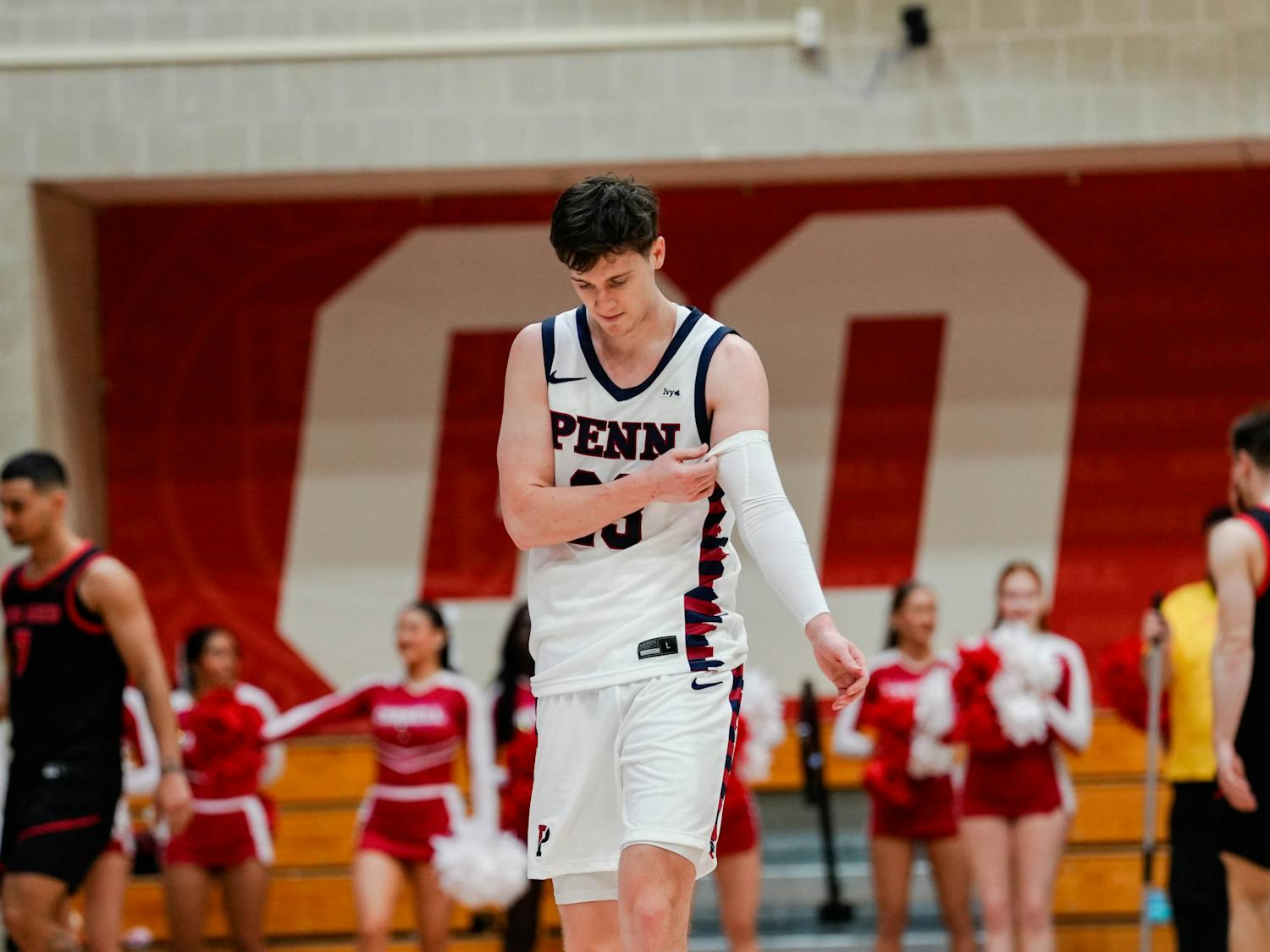PRINCETON, N.J. — When a streak reaches double digits, is it still a streak, or just the norm?
That is the question Penn men’s basketball must confront after Saturday, when the Quakers fell on the road against rival Princeton 77-70. It is Penn’s (9-13, 1-6 Ivy) tenth straight loss to the Tigers (17-3, 5-2 Ivy), extending the team’s longest losing streak in its 121-year history of the series. Despite repeatedly weathering Princeton’s runs and keeping the game close deep into the second half, it was ultimately another sour outcome for the Quakers.
“We haven’t got over this hump. I know that. It’s cost us two championships,” coach Steve Donahue said, referencing the end of last season when Penn lost out on a regular season Ivy title and was eliminated from Ivy Madness at the hands of the Tigers in back-to-back games. “More than that, I can’t focus on that, but I hear [the criticism].”
Despite the loss, the Quakers enjoyed the long-awaited return of senior guard Clark Slajchert, who has been out after suffering an ankle injury against Houston on Dec. 30. Though Slajchert managed just 10 points, Donahue said the importance of having someone who has “been through it” before could not be understated.
The Quakers came out of the gate firing, scoring the game’s first five points and leaping out to a 12-5 lead. Penn’s 6-for-10 early shooting was a welcome sight for the team, which saw for the first time this conference season what it is truly capable of with its full complement of players.
But as quickly as the Quakers gained an advantage, the Tigers snatched it back. A 16-3 run from the Tigers, including 11 points from guard Xaivian Lee, erased Penn’s lead and served as the first in a series of hefty punches thrown by Princeton.
Though the Tigers seemed ready to break the game open, a string of gritty defensive stops from the Red and Blue drew them even as the first half wound down. The Tigers connected on just one in the last seven minutes of the half, and that stand, combined with a 40-point first half from Penn, gave the Quakers a four-point halftime edge.
“I thought we competed really hard,” Donahue said. “I thought we did what we wanted to do … We got what we wanted.”
But at the start of the second half, the Tigers pounced. Princeton regained the lead on a pair of free throws from Lee, who ultimately finished with 22 points to lead all scorers. Then, after a small Tiger run, a stirring slam from forward Caden Pierce put Princeton up 51-46 and galvanized Jadwin Gymnasium's first sellout crowd since 2002. But again, Penn stuck around, battling back and taking a 54-53 lead with 10 minutes and 18 seconds to go.
“That’s a big step for us, as a young team,” Donahue said of Penn’s ability to withstand and respond to Princeton’s thumping runs. “We didn’t hang our heads; we came down on the other side of the court and got a great shot. I just thought the poise [was clear].”
But after inflicting so many body blows, Princeton’s final punch was the knockout.
After falling behind 54-53, the Tigers ripped off a 19-8 run to go ahead 72-61, sending the Quakers to the canvas once and for all. Princeton shot a ludicrous 6-for-8 from three during the run, with all of its field goals coming from beyond the arc. Meanwhile, the Red and Blue offense stalled, creating an insurmountable deficit, adding to a new chapter in the Tigers’ recent rivalry dominance.
Penn will play five of its last seven games at home, a stretch that Donahue says gives him hope that the team can still regain ground and enter contention for Ivy Madness. He also praised the team’s togetherness and work ethic amid a six-game losing streak, and said that when the Quakers play their best, they can beat “anybody in the league.”
But regarding the Red and Blue’s losing streak against Princeton, which dates back to Feb. 6, 2018, the answer is still missing.
“We got to figure it out,” Donahue said.









